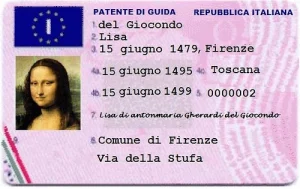Paralegal Licensure
A paralegal who gains professional licensure has a far better advantage than those who do not. Paralegals are not legally required to obtain professional licensure but it is in their best interest if they desire to succeed in the paralegal field. A paralegal who has obtained licensure demonstrates to prospective employers that they have the qualifications and education needed to meet detailed criteria for paralegals.
In order for a paralegal to obtain licensure they must be at least 18 years of age, have education specifically in paralegal studies or at least three consecutive years of experience as a paralegal, and maintain professional liability insurance against professional malpractice. Another factor that determines whether or not a paralegal is able to obtain a license is their personal criminal and professional history. If the individual has a felony charge or is currently under suspension or termination by a professional organization this could interfere with the paralegal’s ability to obtain their licensure.
A person who meets all of the qualifications to be a paralegal must then take a proficiency-based exam. There are two fees involved at this point. One fee is paid for the examination and the other fee is paid to the Licensing Board in their particular state. No license lasts forever. Every paralegal’s license expires after two years and must be renewed. Renewal is made by a simple payment to the State Regulation Board.
If a paralegal does not maintain the ethics code established by the licensure board their license can be revoked, suspended, or canceled. In some cases a paralegal can have their license placed on probation. Some of the reasons a paralegal’s license would be on probation would be for negligence, unethical conduct, or fraud.
Attorneys and firms realize that paralegals who are operating under licensure have more at stake professionally and must hold a greater commitment to their work. For this reason, licensed paralegals are more desirable due to the professional integrity that is associated with the license. Only those who meet the stringent state criteria set can obtain their license and begin to practice as a licensed paralegal. Those who fraudulently operate under the title of licensed paralegal can suffer legal penalties and can be charged with a crime by the state.
Not every state supports the idea of paralegals having licensure. Because licensure controls the entry paralegals can have into the profession, many deem licenses as something that will hinder the progression of the paralegal profession. These same states also feel that licensure will not affect the competence or ethical performance of the paralegals.
The license issue is one of the most controversial and complex issues in the paralegal profession. Many paralegals who have practiced for a considerable time do not like the idea of the tests, regulatory rules, and strict codes that would compose licensing. Many paralegals feel that because they already work under the supervision of attorneys, additional regulation is costly and unnecessary.
